Part 1-Raffensperger and Kemp Cannot Be Trusted in 2024 Elections
County Election Boards Must Consider Verifiable Alternatives
Neither Raffensperger, Nor Kemp, Can Be Trusted
One would have to look long and hard to find an individual outside Georgia’s prison system less trusted than Secretary of State Brad Raffensperger, with the possible exception of previous Secretary of State, now Georgia Governor, Brian Kemp. Well before the 2020 election, Raffensperger and Kemp, together or separately, initiated a course of events which would ultimately destroy the credibility of Georgia’s election system, each earning a badge of personal untrustworthiness many times as events unfolded.
As a result, until an honest, decentralized, verifiable election system can be operated in every voting precinct in the state, the citizens of Georgia, by and large, will never trust the results of statewide or local elections again. Whether these two state officials actually conspired to accomplish the state of of affairs I describe, I cannot say. But the necessary groundwork to proceed down a certain intricately-woven path of government policy-making, each subject doing his part, happenstance doing the rest, thus bringing Georgia to these unenviable circumstances, reveals that distinct possibility.
Below, and in subsequent contributions, I will recount the many ways these two individuals, Brad Raffensperger and Brian Kemp, entrusted by Georgians with the highest responsibilities, destroyed that trust, now leaving our county election boards to decide whether the resulting circumstances trigger lawful authority to abandon Georgia’s uniform, statewide ballot marking device (BMD) voting system, deeming it legally “impracticable,” opting instead in favor of simple, decentralized, verifiable paper ballot systems in time for the 2024 election season.
Roots of Present Circumstances Date Back to August 2014
Franklin Roosevelt, a man who should know, once remarked, “In politics, nothing happens by chance. If it happens, you can bet it was planned that way.” At the very heart of American politics is its election system. If the 32nd President of the United States, elected to that office four times, is correct, we can expect that the state of affairs existing today concerning Georgia’s beleaguered “Ballot Marking Device” voting system, did not happen by chance. If Roosevelt was right, “you can bet it was planned that way.”
But proper planning and execution takes time. Whether any of the following events were orchestrated, as FDR might expect, is less important than the fact that these events occurred exactly as I present. And the fact that they occurred as documented below, has resulted in a general, intense distrust of the Georgia election system as it has come to be, first under former Secretary of State Brian Kemp, now Georgia’s Governor, and subsequently under the direct supervision of present Secretary of State Brad Raffensperger.
The events to which I refer can be traced back to a seemingly innocuous, political rally in Dawsonville, Georgia, held at an operating pumpkin farm in August of 2014. The events of that day, known to many as “Pumpkingate,” provide a recognizable frame of reference for all that has occurred since, leading to our circumstances today.
Who was there?
Present that day to hold a fun-filled Republican campaign rally at the pumpkin farm were several notable politicians, including Governor Nathan Deal, 9th District US Congressman Doug Collins, US Senate candidate David Perdue and a not-so-well-known Georgia Attorney General by the name of Sam Olens. That was the fateful day citizen journalist Nydia Tisdale was forcibly arrested by a Dawson County law-enforcement officer. Her crime was videoing the event’s speeches once the officer told her to stop.
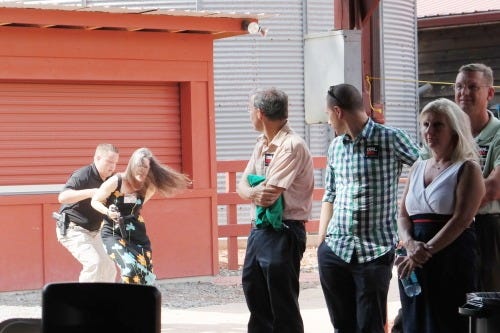
After the arrest, Attorney General Olens took the microphone, likely offending the other candidates present that day, including Governor Deal, who having witnessed the violent treatment of Ms. Tisdale close up, chose rather to ignore all that happened directly in front of them, and instead stand safely silent. Despite the chance of offending the other pumpkin farm politicians there merely to campaign, Olens captured the crowd’s attention, boldly proclaiming the following,
“Let me be possibly politically incorrect here a second. If we stand for anything as a party, what are we afraid of with the lady having a camera, filming us? What are we saying here that shouldn’t be on film? What message are we sending? That because it’s private property they shouldn’t be filming? What is the harm?”
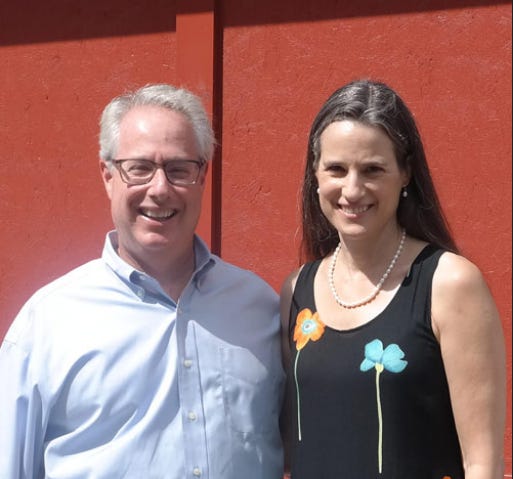
Two years later, halfway through his term, Olens would resign the office of Georgia Attorney General, having taken the job of President of Kennesaw State University in Cobb County, later citing “growing partisanship and friction between politics, policy and law” as his reason. He would never elucidate beyond agreeing to that statement. Despite no particular training or background in education, the offer to land softly at Kennesaw after resigning his position as Attorney General arrived from the late Georgia University System Chancellor, Hank Huckaby, elected to that position by the Georgia Board of Regents, each board member, importantly, appointed by and serving at the pleasure of fellow pumpkin farm politician, Georgia Governor Nathan Deal. I cannot say whether the governor engineered Olens’ departure. I cannot say that because neither Olens nor Deal have said much or anything, respectively, concerning the AG’s sudden decision to resign. All we know is what FDR tells us given the appearance that Deal arranged a somewhat lateral transfer for Olens. Governor Deal’s direct appointees on the Georgia Board of Regents possessed authority over the new hire to head Kennesaw. Given Olens’ background and training, he was not the most qualified candidate for the post. Therefore, the Regents would never have made such an outlying appointment without Deal’s intervention.
Olens’ resignation in hand, the governor wasted no time making his own outlying appointment, tapping the Commissioner of the Georgia Department of Economic Development, Christopher Carr, to fill the open AG seat. Deal’s appointment of Carr was “outlying” because prior to becoming Georgia’s head attorney, Chris Carr had never tried a courtroom case, a practiced skill normally highly-regarded as a qualification for the job of Georgia’s head lawyer. Thus, strangely, after the dust settled, Kennesaw State University had a new president who had no background in education, and the State of Georgia had a new Attorney General who had never argued a courtroom case.
Almost ironically, in the aftermath of the 2020 election, Chris Carr’s first courtroom case would place him before the US Supreme Court in Washington, DC, defending the State of Georgia, and in particular, acts by Secretary of State Brad Raffensperger, in a Texas lawsuit joined by 16 other states, over the legendary disputed presidential outcome.
Control over Georgia’s Election System Seized by Secretary of State Kemp
Strange events seem to follow these pumpkin farm politicians around. I say that because during the time in question, almost predictably, Kennesaw State, the new employer of university President Sam Olens, housed and operated the Georgia Center for Election Systems. According to the Center’s website at the time, the primary purpose of the election system operating under university auspices was to maintain “an arms-length working relationship with the Secretary of State and the vendor, ensuring both independence and objectivity in its work.” Think about that for a moment. The argument leading to this arrangement, in place for the previous 15 years, was that a sitting Secretary of State should not be in charge of a system under which his or her own election is determined. That makes perfect sense. In fact, that is why it is important for any election system to maintain at least and arm’s length of separation not only between various vendors supplying voting equipment and services, but also any candidates running for office, and certainly any elected officials such as a sitting Secretary of State. Thus, to accomplish that separation was the very reason Sam Olens’ new employer, Kennesaw State, had been running the Georgia Election Center all that time. But circumstances were about to work together to alter that arrangement. The reason for operating the election center apart from the influence of politicians running for office under the very system they control, was about to be overridden by Secretary of State Brian Kemp.
Olens Takes Criticism From All Sides
Sam Olens couldn’t catch a break, not as Attorney General and not as university president. That is because, in November 2016, shortly after taking office at Kennesaw State a cyber expert working for plaintiffs in a lawsuit over election system vulnerabilities, alleged identifying a security breach in the Kennesaw election system, possibly by those pesky Russians, unleashing a wave of attacks on Olens as well as accusations of negligence against employees responsible for operating the system apart from political influence. Marilyn Marks, for example, executive director of the Coalition for Good Governance argued “a university has no business playing such a critical role in the oversight of a state’s election infrastructure.” Marks spoke freely about the freshly-hired university president Olens, seemingly wondering aloud to a reporter, “A strange pick is parachuted in, Sam Olens, the only person they interviewed, suddenly becomes the head of the university. He doesn’t have any academic training. He’s not an educator.” And she was right. By all that is holy, at the time these revelations came to light, Sam Olens should have been Georgia’s Attorney General, with two years remaining in his term, not a university president charged with ultimate oversight of statewide elections.
Are you beginning to see why none of this really makes much sense?
And so, because of an apparent breach in the computer system of the Georgia Center for Elections at Kennesaw State, then Secretary of State Brian Kemp had a perfect opportunity to cancel the state’s contract with Kennesaw, and thus bring control and oversight of Georgia elections directly under his office, and under his people, in time for the 2018 mid-terms, an election in which he would personally challenge to become Georgia’s Governor, and an election in which candidate Brad Raffensperger would run to take Kemp’s place.
In the same article, Sam Olens apparently “over” the entire situation, the pumpkin-farm-politician-turned-University-President effectively declared a hearty “good riddance” to operating the election center, his statement reading, “We support the secretary of state’s decision, and look forward to helping facilitate a smooth transition.”
Secretary of State Kemp Authorizes SAFE Commission, Soon Running to Become Georgia’s Governor
Crediting an ongoing lawsuit and the reported Kennesaw data breach as his justifications, after announcing the change bringing election operations under his own facilities, in April 2018 Secretary of State Brian Kemp announced the members of a new “SAFE” Commission, which he would chair, assigned the task of “conducting ‘thorough discussions on all options – including the feasibility of using all hand-marked paper ballots to all electronic machines with a voter-verified paper trail – and travel the state to solicit feedback from stakeholders.” “SAFE” stood for “Secure, Accessible & Fair Elections.”
The tangible result of the SAFE Commission’s work would be a report published by newly-elected Secretary of State Brad Raffensperger in January 2019. By that time, previous Secretary of State Brian Kemp had become Georgia’s new governor, which is another story, roots planted firmly in the soil at the Dawsonville pumpkin farm in August of 2014. I say that because yet another candidate traveling in the Republican caravan that day would play an instrumental role in Kemp’s 2018 election.
Trump Endorsement Wins Kemp the Republican Nomination
To become governor, Secretary of State Brian Kemp would have to leapfrog the natural front-runner, incumbent Lieutenant Governor Casey Cagle, running for the same position. Cagle won the May primary handily, albeit without a requisite majority, leading second place finisher Kemp by a commanding 14%. Cagle had the strong endorsement of out-going Governor Nathan Deal. The Lieutenant Governor solidly led Kemp until a few days before the runoff, at which time President Donald Trump unexpectedly chose to get involved in Georgia’s gubernatorial race, endorsing Kemp in a Tweet.
Gratified and excited to receive Trump’s endorsement, Kemp reciprocated unwavering support for Trump looking forward to 2020, responding to reporters, “It’s huge for us, to have his endorsement. I appreciate the president standing with me – and I’ll be standing with him in 2020.” In retrospect, we can see what Brian Kemp’s future “unwavering support” is really worth.
Wondering how the endorsement really came about, the Atlanta Journal-Constitution reported,
It’s unclear how Kemp won over the president, who has prominent backers in both campaigns.
U.S. Sen. David Perdue and U.S. Agriculture Secretary Sonny Perdue – who tapped Kemp for the secretary of state job in 2010 - are both neutral in the race, and several Perdue allies said they had no part in the endorsement.
Asked how he landed Trump’s support, Kemp said: “Who knows? We’ve just been down here working hard, trying to keep the momentum going on.”
Later, during numerous rallies, Donald Trump would publicly reveal the Kemp endorsement directly resulted from a request by pumpkin-farm-politician-turned-freshman-Senator, David Perdue. All this makes one wonder what might have occurred had a few storms that day required the pumpkin farm event to cancel.
The Takeaway
Notwithstanding various possibilities of inner-workings among the pumpkin farm politicians, the important knowledge a reader should take from all this is that, each of these relationships worked together either by design or happenstance, to bring about the conditions under which major changes in the operation of Georgia’s election system would be forced into existence.
As I leave Part 1 of the narrative, the Georgia election system in place for 15 years, run by disinterested academics at Kennesaw State University, has been put on notice that their services would no longer be needed beyond June of 2018. In its place, having assembled the SAFE Commission, Secretary of State Brian Kemp spun into motion the creation of a new, in-house election system, this time, however, run under the direct supervision of Georgia’s elected Secretary of State, rather than a disinterested 3rd party.
Please share this Substack with everyone you know.
Soon, the smoking gun will be revealed…
“We cannot absolutely know that all these exact adaptations are the result of preconcert. But when we see a lot of framed timbers, different potions of which we know have been gotten out at different times and places and by different workmen, and we see these timbers joined together, and see they exactly make the frame of a house or a mill, all the tenons and mortieses exactly fitting, and all the lengths and proportions of the different pieces exactly adapted to their respective places, and not a piece too many or too few-not omitting even scaffolding-or, if a single piece be lacking, we see the place in the frame exactly fitted and prepared to yet bring such piece in-in such a case, we find it impossible not to believe that all understood one another from the beginning, and all worked upon a common plan or draft drawn up before the first lick was struck.”—Abraham Lincoln, House Divided Speech before the Illinois Republican State Convention, Springfield, Illinois June 16, 1858.





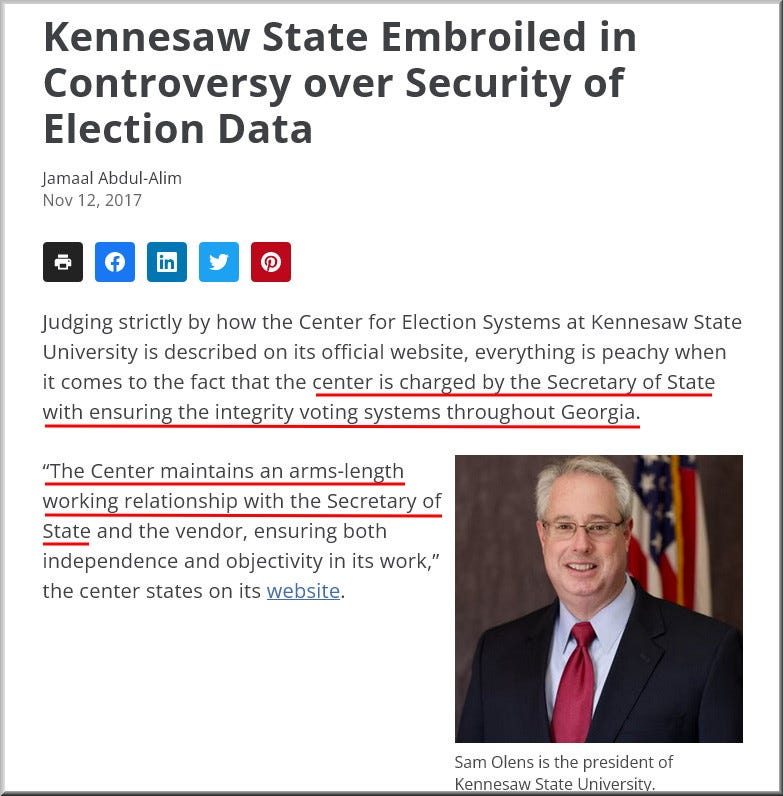

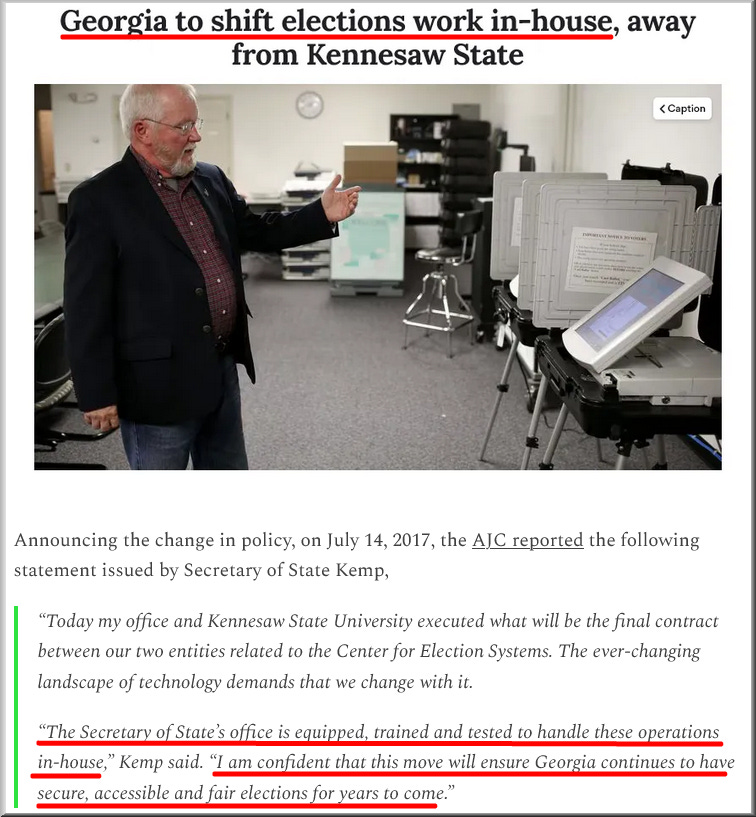
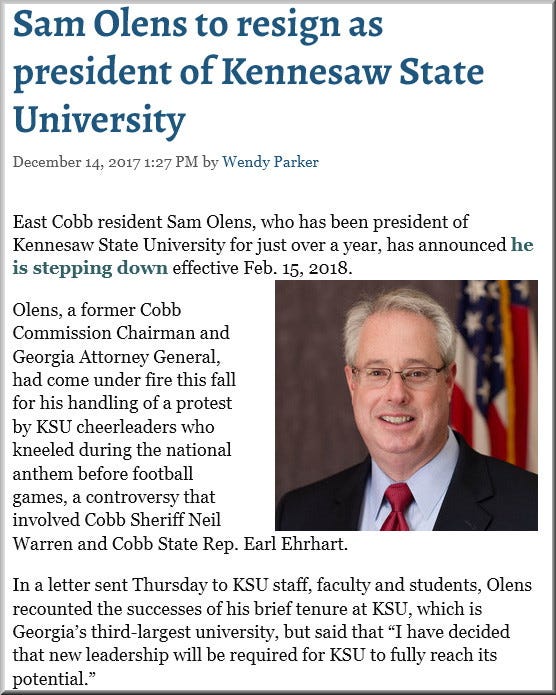
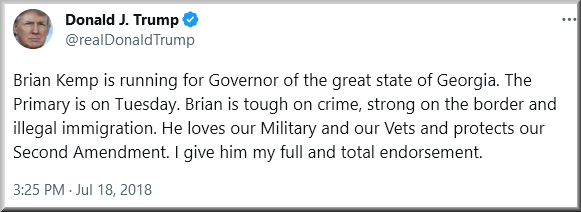
Revealing!!!
good lort, could lincoln stretch that second sentence any longer. a whole lot of ands. 🤦🏼♂️